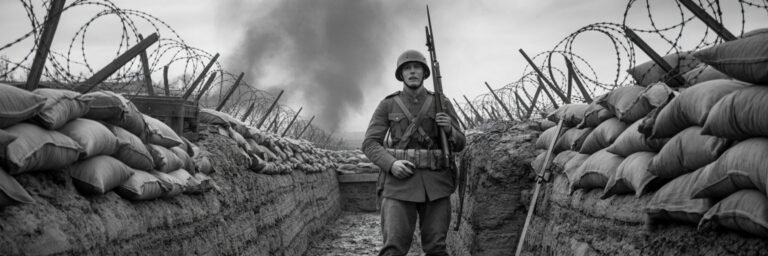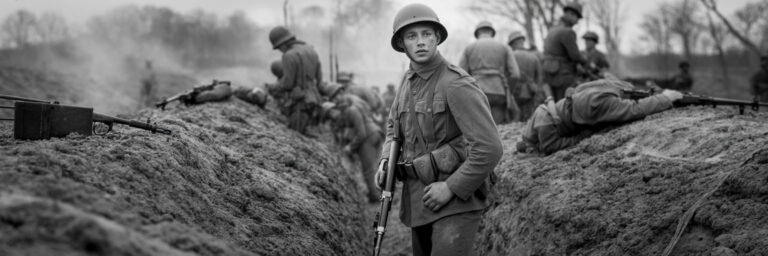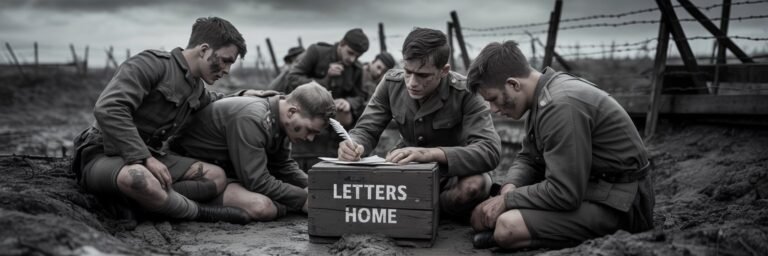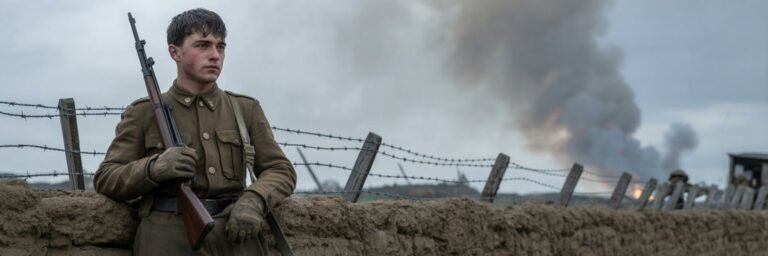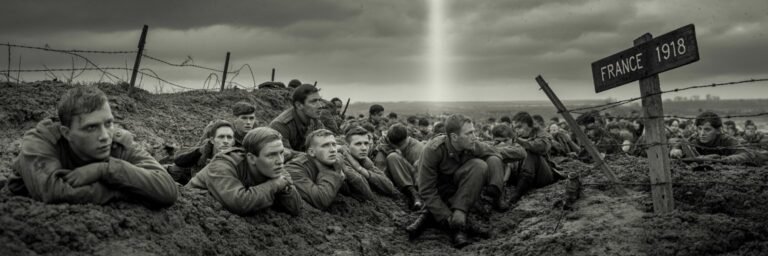INTRODUCTION
Ladies and gentlemen, seekers of historical enlightenment, brace yourselves for a journey through time. Let paintbrush-like words color a vivid picture of the fierce grit and the raw passion hidden within world-changing speeches and timeless war quotes. The First World War, a monumental cataclysm that altered the course of human history, was a crucible of patriotic rhetoric and seminal quotations. Humanity’s clash with the devastating new face of industrialized warfare bred unforgettable speeches and quotes expressed by political leaders, soldiers, and poets alike. These powerful words, like echoes of thunderbolts through time, shed invaluable light on an era marked by tragedy, heroism, revolution, and the resilience of the human spirit.
HISTORICAL BACKGROUND
The year was 1914. The world was precariously balanced on a razor’s edge, between peace and a war that would bind the globe in an unprecedented conflagration. Sabers rattled in European capitals, alliances were formed and tested, and a single bullet ignited the powder keg of tension, sparking the bloody saga we know today as World War I.
The first war waged on truly global proportions was not just a theater of violence. It was a stage where words, principles, and ideologies were equally wielded as weapons, immortalized in speeches, declarations, and the poignant letters of soldiers in the trenches. Noble rhetoric and flame-tinged, emotional pleas stirred peoples and nations, rallying them towards a war fought not only in the name of politics but also in the name of ideologies.
THEORIES AND INTERPRETATIONS
Historians, linguists, and socio-political analysts have dissected these wartime discourses, unearthing layers of meaning and historical significance. A popular theory suggests that these speeches and quotes were essential tools of propaganda, aimed at galvanizing public opinion and keeping the home fronts energized. For instance, President Woodrow Wilson’s famous ‘World must be made safe for democracy’ speech masterfully intertwined the notions of freedom, democracy, and national pride to gain public consent for the U.S. entering the war.
However, other experts offer a more humanistic approach, viewing these speeches as reflections of the leaders’ passion, sincerity, and conviction regardless of their political aims. For instance, British Prime Minister David Lloyd George’s impassioned speeches were perceived as emanating from his deep-seated belief in the causes he advocated.
MYSTERIES AND CONTROVERSIES
Wrapped within these historical speeches and quotes, there exist mysteries and controversies that continue to perplex historians and enthrall readers. The most contentious of all is perhaps the 1920’s ‘Angel of Mons’ speech by British author Arthur Machen. The speech spun a tale of phantom British bowmen from the Battle of Agincourt aiding British soldiers against the invading Germans. Although Machen claimed it was fictitious, his words were embraced as a spiritual truth by many. The speech sparked religious and superstitious furore prompting debates over wartime falsehood and truth, a controversy that endures to this day.
SYMBOLISM AND CULTURAL SIGNIFICANCE
The speeches and quotes borne of this war often bristle with symbolism, each an avatar of the ethos and the spirit of the time. Images of the brave soldier, the motherland, the enemy, all painted in lurid yet powerful strokes across the canvases of these speeches symbolized and amplified the passions, fears, and hopes of millions.
For example, the famous quote by the British war poet Wilfred Owen, ‘The old Lie: Dulce et Decorum est Pro patria mori’ which translates to ‘it is sweet and proper to die for one’s country’, pointedly critiques and ridicules the romantic notion of dying for one’s country, reflecting not only Owen’s own traumatic experience but also the disillusionment and despair that had seeped into the broader zeitgeist.
MODERN INVESTIGATIONS
Research in the modern era continues to illuminate the significance of these texts. Detailed linguistic, historical, and psychological analyses have added new dimensions to our understanding of these histological gems. They serve as a treasure trove for literary and rhetoric analysis and provide insights into the affective workings of political propaganda and leadership charisma.
There is ongoing debate surrounding the influence of these speeches and quotes on contemporary rhetoric and political messaging. Critics claim that this generation of leaders crafted a hybrid language of politics and poetry that has become a scaffold for modern political oratory.
LEGACY AND CONCLUSION
In surveying the legacy of these words that have been etched into the bedrock of history, we find that their echoes do not merely recede but resound and reverberate through the corridors of history. These profound speeches and quotes are immortalized not only in history textbooks but also cultural productions like films, novels, and music, thus bounding generations in shared historical memory and understanding.
In conclusion, these speeches and quotes from World War I transcend historical documents; they are sociocultural artifacts serving as powerful time capsules into the psyche of societies during the wartime periods. As much as they reflect a snapshot of their era, they are a crucial lens through which contemporary society refashions its interpretations of the past, thus symbolizing the timeless and enduring impact of the human voice amidst the ravages of war. The immense emotional resonance and historical significance of these words, etched upon the cornerstone of history, will perhaps forever be a testament to how humanity expressed itself in the face of dire peril.

